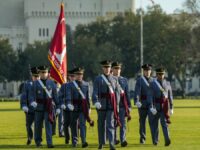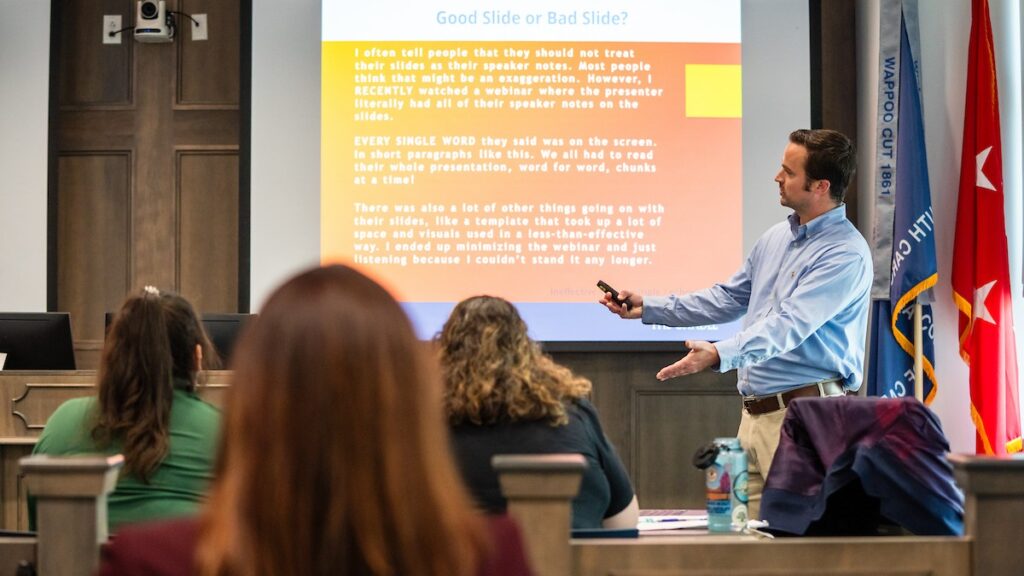
The Citadel’s Patricia McArver Public Speaking Lab hosted the Coastal Conservation League on Aug. 13 and 14 as part of a two-day public speaking boot camp aimed at sharpening communication skills.
The Coastal Conservation League works to protect the Lowcountry’s natural resources and environment, a mission that often requires explaining complex issues to their board, politicians and the general public. The nonprofit reached out to The Citadel to guide its team on new tools for communicating clearly and persuasively with a variety of audiences.
Public speaking is an important skill for leaders, both on campus and in the community. Sean Fourney, director of the Public Speaking Lab, talked about what leadership means in the context of public speaking.
“Leadership is about being able to influence others to achieve shared goals, and you can’t be an effective leader without knowing how to connect in a meaningful way about those shared goals. In that way, public speaking is ‘public’: we never realize the connection and shared interests we have until we go out into the public and interact with our community,” said Fourney.
The first workshop covered the public speaking basics. Such as, identifying a message, crafting an outline, and learning about engagement, relevance, and practice. On the second day, participants focused on delivery. They gave a mock presentation to community members and received feedback that helped refine both performance and content. By the end of the two-day workshop, participants discovered that public speaking is more than just delivering information — it’s about building connection and clarity.
“I met with a member after the workshop, and she said it best: ‘This workshop made me realize that there are communication strategies I can utilize that aren’t just a repetition of facts.’ That has always been our goal in the Public Speaking Lab. We focus on developing a coherent message, engaging content and professional body language that will help speakers connect with different audiences. There is a tendency to want to put everything on a screen these days or read all the research we have done, but that isn’t effective. It’s just information overload,” explained Fourney. “Instead, if we can choose the most important content, present it in a way that makes the audience think, while also speaking passionately, the audience will listen and want to know more because they feel that this speaker has taken the time to customize something just for them.”
While the public speaking lab primarily serves The Citadel’s cadets, students, faculty and staff, it also partners with local organizations to support the college’s mission of leadership and community engagement. From timid talkers to confident communicators, the lab offers one-on-one coaching in public speaking, professional presentations, interviewing, informative and persuasive speaking, and interpersonal communication. The space doubles as a training room and recording studio.
The Public Speaking Lab stays busy throughout the year. It also has a Public Speaking Club, Quad Talkers, which meets weekly to practice communication and professional development. At the end of the year, the Public Speaking Lab concludes with a Public Speaking Competition, The Lowcountry Speaking Invitational, that seeks to find the best student speaker in all of Charleston. Last year, The Citadel welcomed five different colleges and high schools for an incredible night of informative storytelling that saw Cadet William Harris crowned “The Best Speaker in the Lowcountry.” The Public Speaking Lab also helps the cadet graduation speakers connect for one final time with their classmates at commencement, spending months of preparation with the senior class president and the last cadet across the stage to find the message that best encapsulates their graduating class.
Fourney sees more opportunities for collaborations with other local organizations and nonprofits in the future.
“We’ve been busy with workshops and outreach to schools ever since COVID faded. We have spoken to Charleston County Council, South Carolina Association of Counties, Hispanic Alliance of South Carolina, The Big Beyond Mentoring Program and high schools throughout the area,” said Fourney. “These partners enrich our leadership experience because they help the cadets get a sense of how to connect with those from all different walks of life, and in return we provide public speaking instruction, activities and opportunities to continue to make our community a better place for everyone.”

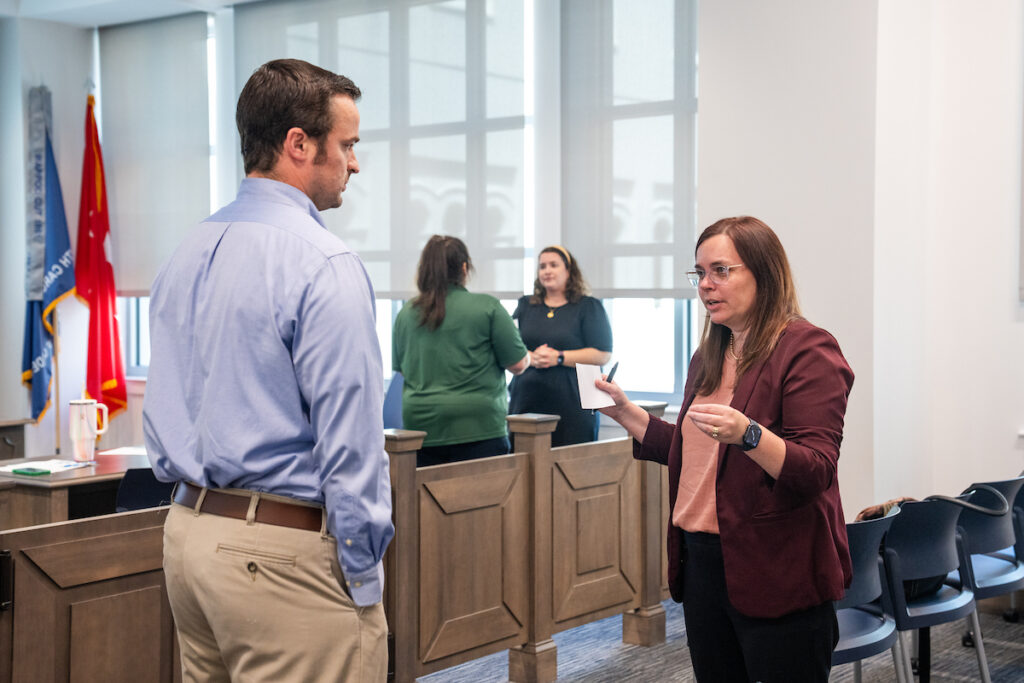
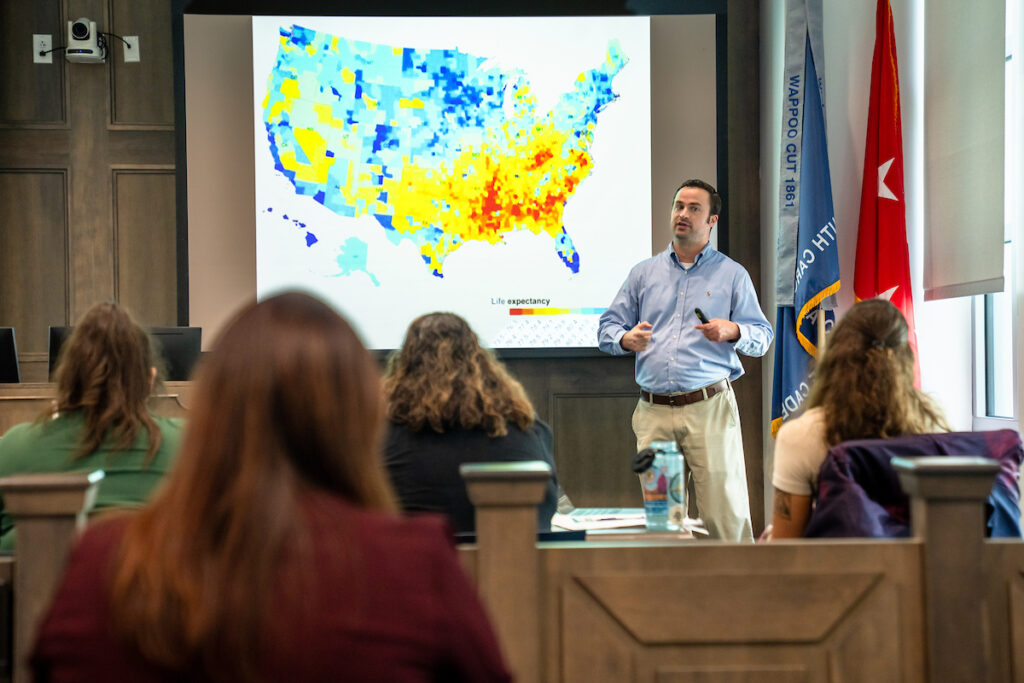
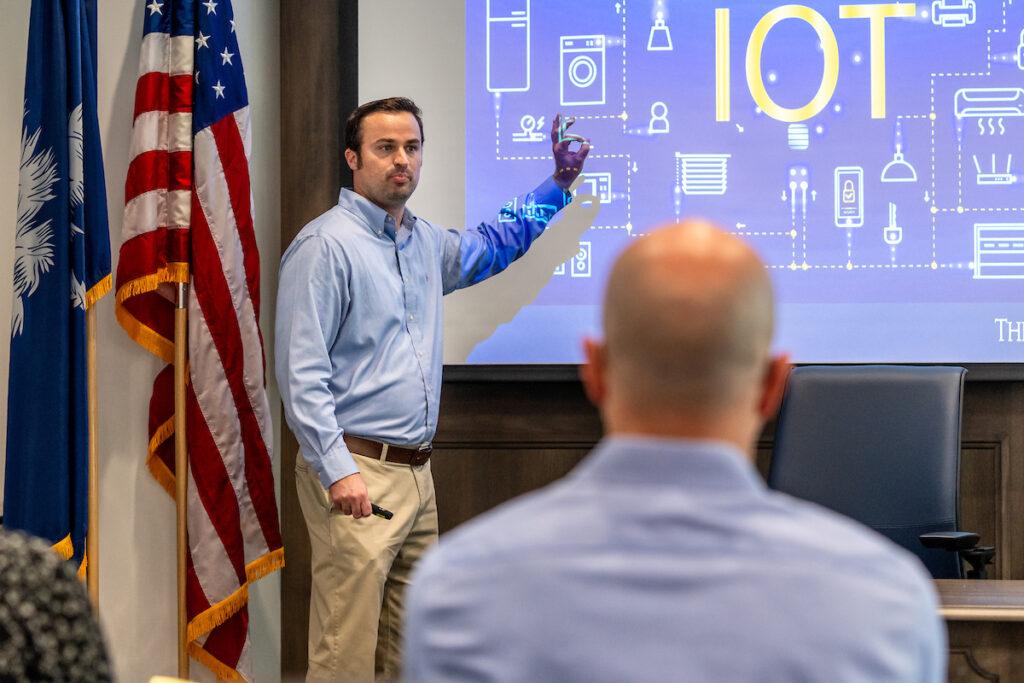
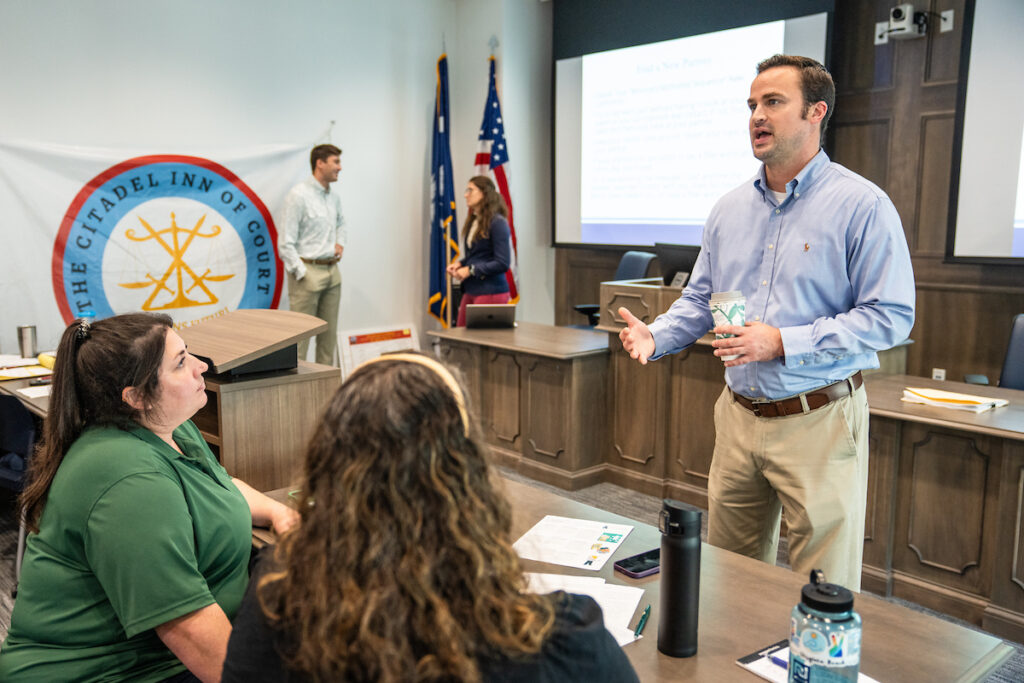
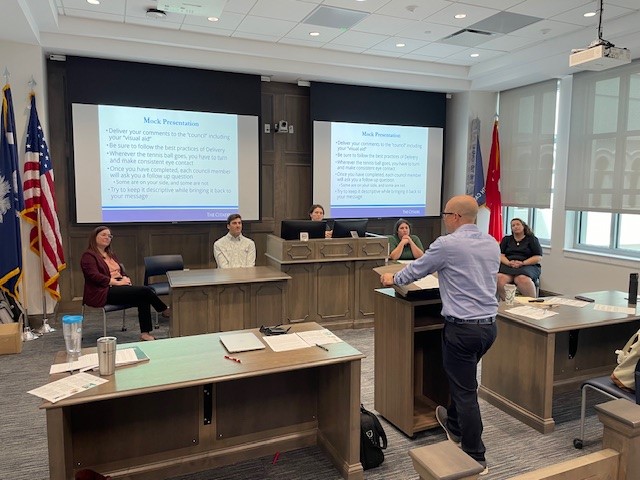
 Looking ahead to the major events of 2026-27
Looking ahead to the major events of 2026-27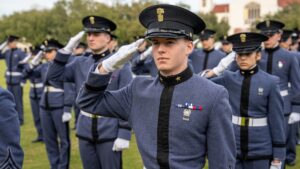 Photos from campus: January in review
Photos from campus: January in review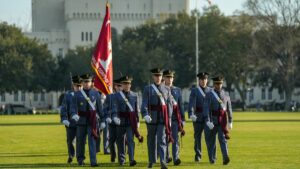 Upcoming News from The Citadel – February 2026
Upcoming News from The Citadel – February 2026

